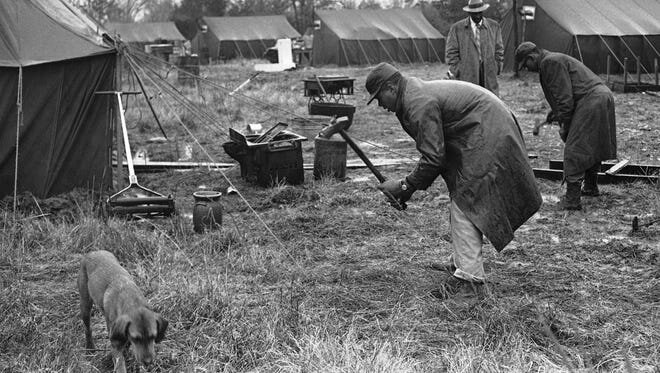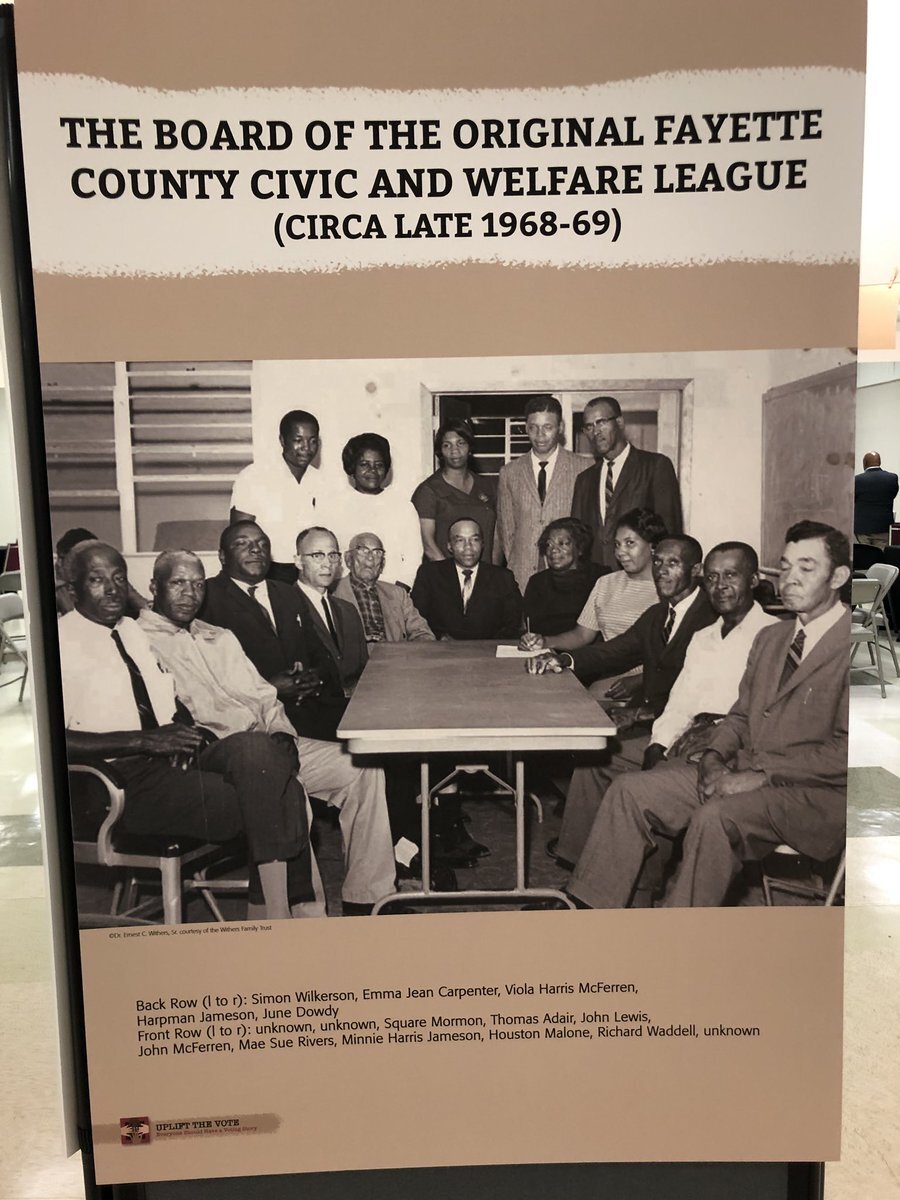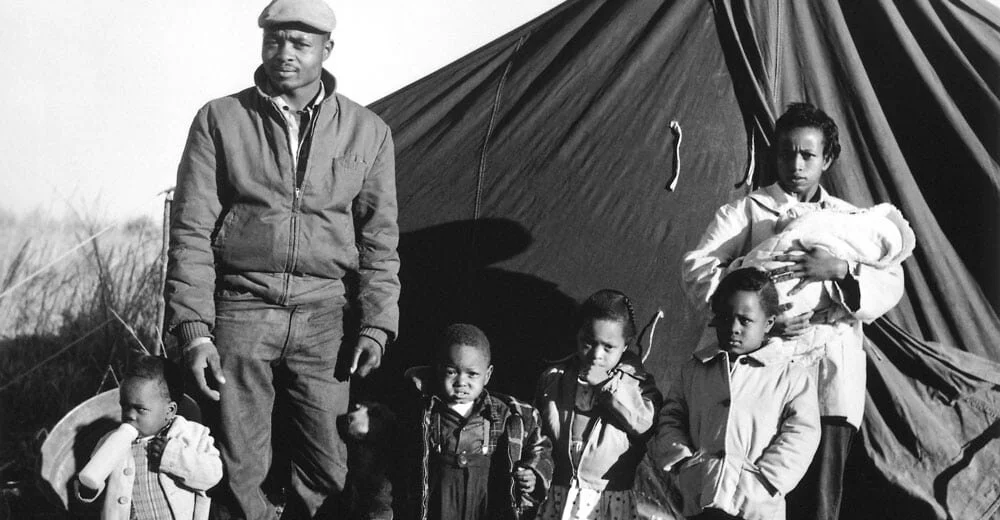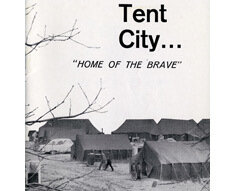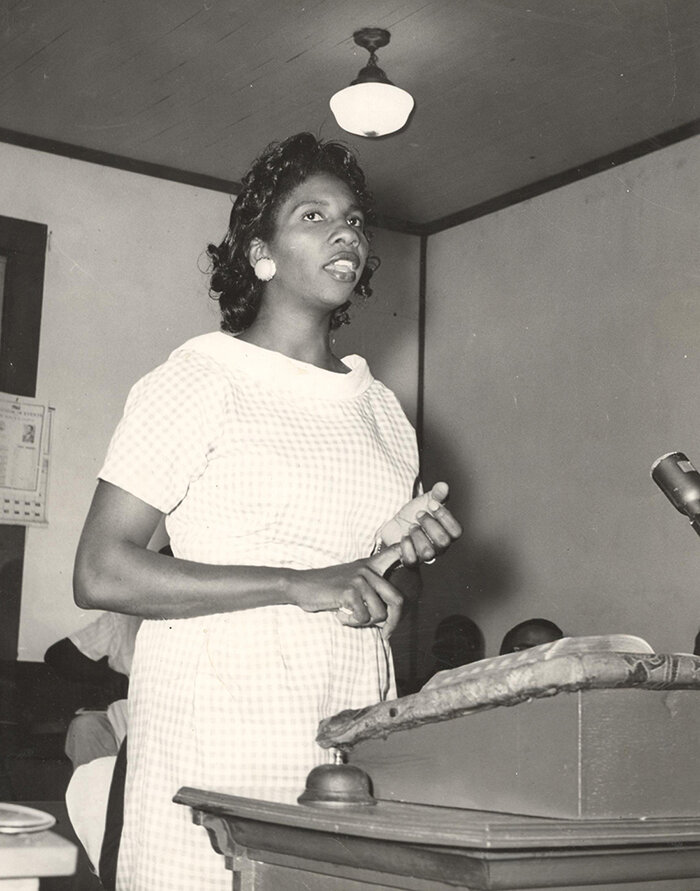Tent City: Voting Challenges Now & Then
John McFerren
Written by John Edwards
On May 23, 1940, in Fayette County, a black farmer, Burton Dodson came to blows in a heated argument with another man. The other man was white and the fight quickly drew a crowd. The sheriff quickly “deputized” the men in the crowd. The group later surrounded Mr. Dodson’s house and called for him to surrender. Mr. Dodson fled amid gunfire and returned fire as he ran into the woods to avoid capture. In returning fire, he killed one of the “deputies.” Mr. Dodson fled to East St. Louis, Illinois where he was later captured in 1959. He was extradited back to Fayette County to stand trial for murder.
Harpman Jameson, and John McFerren, Sr. two farmers that farmed their family owned land, became concerned that Mr. Dodson would not get a fair trial considering that there were no blacks on the jury. After inquiring, they found that the reason that there were no blacks on the jury was because there were no blacks registered to vote in Fayette County, despite blacks making up 70% of Fayette County’s population.
Registering to Vote and the Backlash
The all-white jury found Mr. Dodson guilty and sentenced him to life in prison. However, the trial caused a movement to form in Fayette County to get black people registered to vote. There were two groups formed in 1959 to get blacks registered to vote, The Fayette County Civic and Welfare League and the Haywood County Civic and Welfare League. This move caused a severe backlash for blacks in Fayette and Haywood County.
Many landowners in the county feared blacks voting in significant numbers. The move to register voters was therefore quickly met with retaliation. Although the federal government had passed the Civil Rights Act of 1957 and the Voting Rights Act of 1960, many in Fayette County were determined not to lose their power. With the help of the Federal Government, many were able to register and vote in the 1960 election which made many changes in the county’s electoral makeup.
The Making of Tent City
In the fall of 1960, landowners began evicting the black tenants in Fayette County. One landowner, Shepherd Towles allowed the now homeless families to stay on his farm, which was located 5 miles south of Somerville. An anonymous white businessman donated 14 canvas tents and they were erected on Mr. Towles field. 81 people from 11 families initially moved to the settlement of temporary homes. At that time, the settlement was known as Fayette County Freedom Village, but many just called it Tent City. The evictions increased and eventually more than 345 families had been rendered homeless. 15 miles south of the original Tent City, Gertrude Beasley allowed her property to be used for some of the evicted families.
Like Mr. Towles and Ms. Beasley, some whites in the area helped the families through donations and other landowners refused to evict their tenants or call in their loans prematurely even though they were pressured by the neighbors that had started this discrimination. Labor unions, the NAACP and other organizations also assisted the displaced families.
In 1962, the Federal District Court issued a consent decree that prohibited landowners from using these types of practices to prevent blacks from registering or voting. Some residents eventually moved out of the county or moved in homes built for their resettlement.
The Continuing Impact
The fears and acts of voter suppression are still rampant today and are evident in practices that make it easier to buy a gun than to vote. It is evident that factions that fear large voter turnouts are busy once again trying to make it harder to vote. While voting in America for minorities has always been more of a privilege than a right, the voter suppression laws have increased since the election of Barack Obama. In 2020 alone, since the Republicans lost the White House and the Senate, 28 states have introduced or pre-filed 106 bills aimed at restricting voting. Most of the bills propose to limit mail voting access, impose stricter voting ID requirements, limit voter registration opportunities and enable more voter purges.
Pennsylvania, New Hampshire, Missouri, Mississippi, New Jersey, Texas and Georgia are leading the way on these suppressive actions and all are led by Republican lawmakers. This only shows that even though America is moving in a positive direction, there are still those pockets of people that want to prevent eligible people from voting through laws, practices and intimidation. I am confident that like the days of Tent City, fairness and equality will win out in the end. We will be able to move closer to a nation that truly supports the tenant that all men are created equal and should have the same rights under the Constitution.
Written by John Edwards


